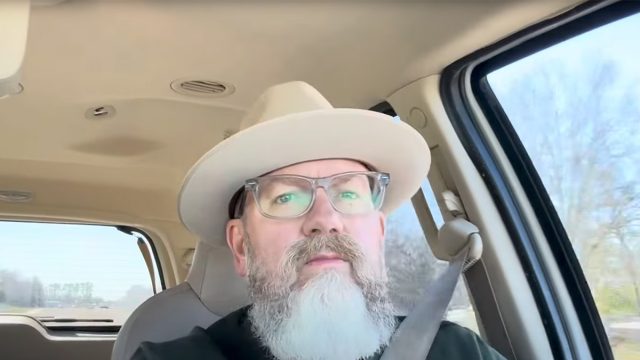I Lost 120 Pounds by Cutting Out These Common Foods I'll Never Eat Again
Are you struggling with weight issues, diabetes, or hypertension? Meet Scott Sampson (@Becoming_Superhuman), a realtor and social media influencer who once faced these same challenges. At his heaviest, Scott tipped the scales at 300 pounds and was pre-diabetic and pre-hypertensive. But through a dramatic change in his diet, he managed to shed an impressive 120 pounds in less than a year. Scott's story isn't just about weight loss; it's about reclaiming health and vitality. Read on to discover the simple yet effective approach that transformed Scott's life – and could change yours, too.
He Eliminated Processed Foods
Scott's journey began with a crucial step: cutting out processed foods. "If it comes in a box, a bag, a bottle, 99% of the time, it is not good for you," he explains in his video. This meant avoiding anything with more than two ingredients. Scott emphasizes, "If it had more than two ingredients, I didn't eat it." This simple rule helped him navigate the complexities of modern food choices and focus on wholesome options.
Clinical dietitian Debra Ruzensky warns: "Processed meat is any meat that has been preserved by salting or smoking. As well as the well-known examples like hot dogs and bologna, it includes almost all deli meats used in sandwiches, bacon bits added to soups and salads, and sausage and pepperoni you find on pizzas."
He Embraced Whole Foods
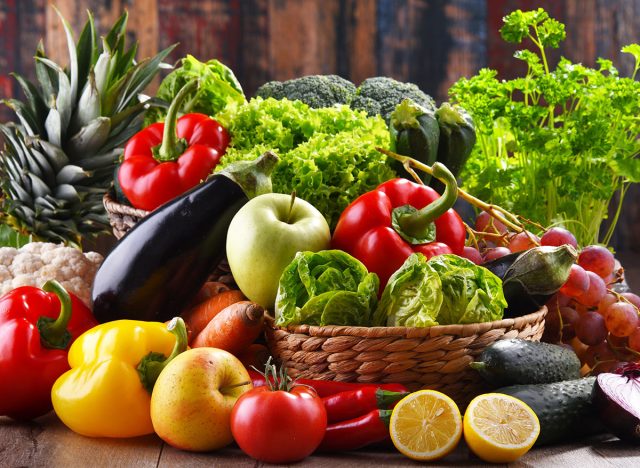
The core of Scott's diet revolves around whole foods – items with just one ingredient. "Real food is basically a one-ingredient food. It's a potato, it's a cabbage, it's a steak, it's a ham slice of ham. It's tomatoes, it's fruit, vegetables, proteins," Scott clarifies. By sticking to these basics, he ensured his body received the nutrients it needed without the harmful additives often found in processed foods.
He Went Low-Carb
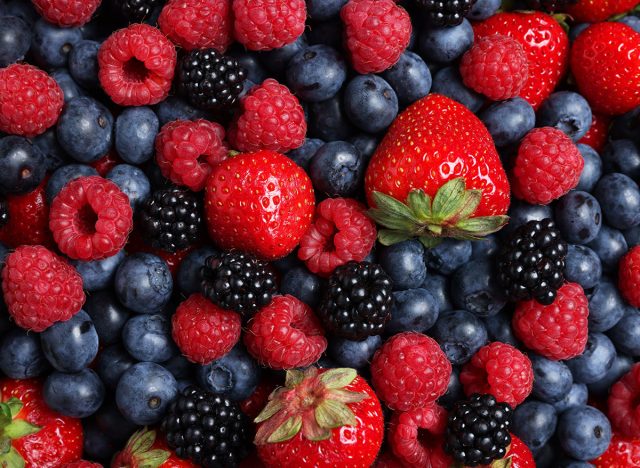
Given his pre-diabetic condition, Scott opted for a low-carb approach. "I had to remove all of the refined carbs from my diet," he shares in his video. This meant saying goodbye to potatoes, rice, bananas, sweet fruits, starchy vegetables, and grains. Instead, he focused on meat, vegetables, and occasional low-sugar fruits like berries. Scott cautions against overdoing fats, especially for those trying to lose weight: "If you're trying to lose weight, you already have plenty of energy stored up in your body in the form of fat. You don't have to give your body more fat."
Cutting carbs is significantly easier than counting calories and being constantly hungry—especially as limiting calories can slow down metabolism. "Insulin — you can think of (it) as the ultimate fat cell fertilizer," says Dr. David Ludwig, professor of nutrition at Harvard School of Public Health. "Too much insulin, fat cells get programmed to hoard calories. So there aren't too many calories in the bloodstream. And that's why we get hungry." Jeff Volek, a professor at Ohio State University, adds, "When you limit carbohydrates, the body gets really good at burning its own body fat because it doesn't have a lot of sugar to burn for fuel."
He Warns Against Overdoing Fats on Ketogenic Diets
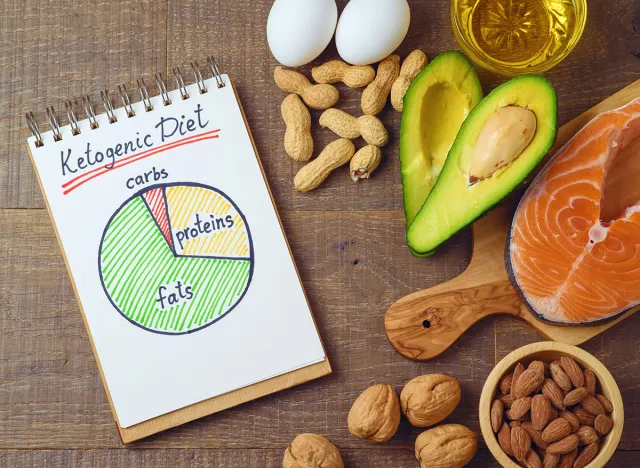
Scott warns against common misconceptions about ketogenic diets: "If you look at a standard ketogenic diet, it's going to have a large amount of fats, maybe 50% fat or more, takes out the carbs, but it increases it by the fats." He cautions against overdoing fats, especially for those trying to lose weight: "If you're trying to lose weight, you already have plenty of energy stored up in your body in the form of fat. You don't have to give your body more fat," he says in his video.
Body Network's Resident RDN, Tara Collingwood, MS, RDN, CSSD, LD/N, ACSM-CPT, a Board Certified Sports Dietitian, warns that ketogenic diets can lead to nutrient deficiencies. She says, "Ketogenic diets should not be followed long term. Your body needs carbohydrates, specifically from fruits, vegetables, and whole grains, for overall health, especially digestive health and disease prevention."
Transitioning to a Fat-Burning Machine
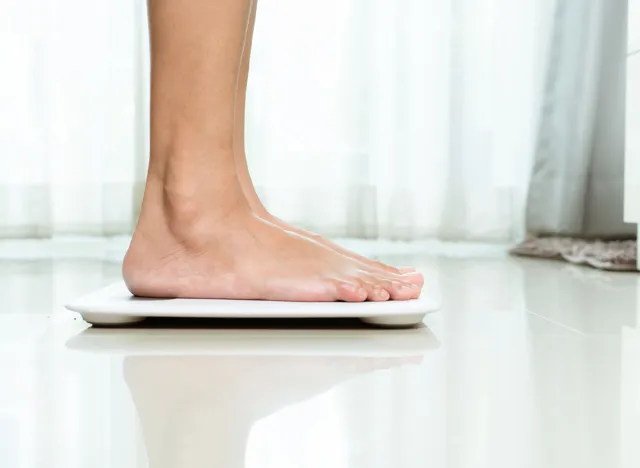
Scott acknowledges that transitioning to a low-carb diet can be challenging. "Your body's going to go through a transition where it has to turn from a glucose burning machine… into a machine that burns fat for fuel," he explains in his video. This process can take several weeks, and Scott suggests temporarily adding healthy fats to ease the transition. "At the beginning of your low-carb diet, you should maybe add in a little bit of fat. And then as your body becomes fat adapted… you can start eliminating those things."
"Metabolic rate is determined by many variables, and you can get measurements done that can estimate this more accurately for you. Knowing your metabolic rate can help you to plan your nutrition and exercise effectively for fat loss. Your metabolic rate does change with age, foods you eat and changes in skeletal muscle mass," says Lacy Puttuck, MS, RDN, CISSN, CSCS, a Registered Dietitian also at Top Nutrition Coaching.
"Body type plays a role in how and where body fat is lost. The shape of your body does determine where fat will be stored more readily and where loss can be challenging. It is important to know that with the right techniques in nutrition and exercise, you can lose that body fat, but it cannot be targeted. When we are in a caloric deficit and working to maintain lean mass, body fat will be lost," Puttuck adds.
He Recommends Clean Fats and Warns Against Processed Oils

Scott recommends using clean, healthy fats like olive oil, avocado oil, coconut oil, beef tallow, and butter. However, he warns against processed oils: "Not canola oil, not soybean oil, not safflower oil… The rest of those oils are not good for us. They're highly processed. They cause inflammation in our bodies."
Fat is essential for health—but as with sodium, you can have too much of a good thing. "Consuming high levels of calories – regardless of the source – can lead to weight gain or being overweight," says the American Heart Association. "Consuming high levels of saturated or trans fats can also lead to heart disease and stroke. Health experts generally recommend replacing saturated fats and trans fats with monounsaturated fats and polyunsaturated fats – while still maintaining a nutritionally adequate diet."
RELATED: I Lost 45 Pounds Using This 3-Step "Trifecta" Method
Prioritizing Protein
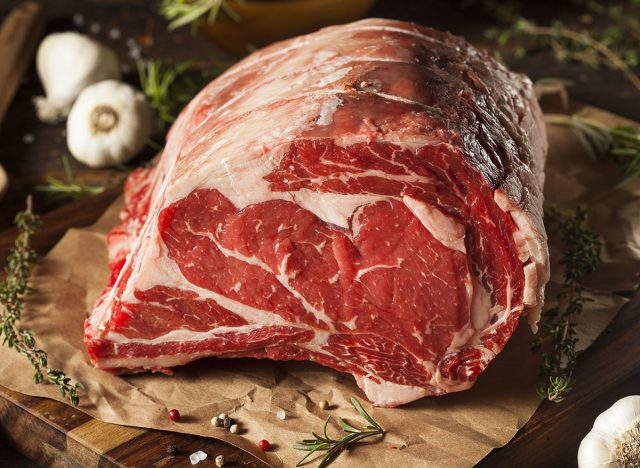
Scott emphasizes the importance of protein, especially for older adults. "We need to prioritize proteins. We need to make sure that proteins are something that we can consume as much as we can," he advises.
Dave Asprey, health science entrepreneur and author, says that "Protein is an amazing weight loss tool". He recommends consuming "at least 1 gram of protein per pound of your ideal body weight per day". Protein helps control appetite by increasing feelings of fullness. Asprey explains, "Protein increases satiety by increasing the hormones that tell your body that it's full. "Most people will benefit from at least 20 grams of protein per meal (women) and 30 grams per meal (men), adds Collingwood.
Balanced Meals with Protein and Cruciferous Vegetables
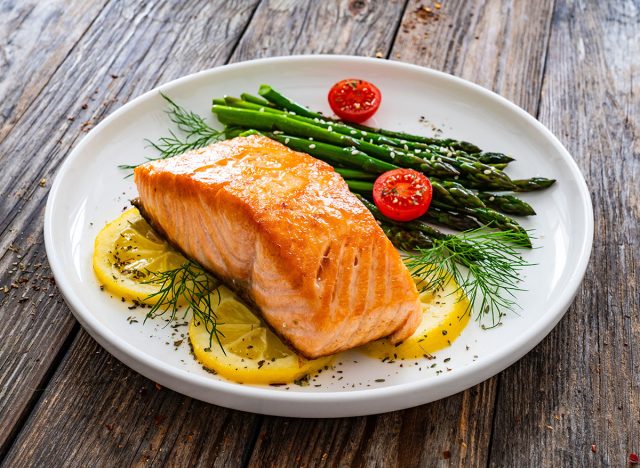
His typical meals include a protein source accompanied by plenty of vegetables, particularly cruciferous ones like broccoli, cauliflower, asparagus, and Brussels sprouts.
He also notes that cooking certain vegetables can make them more digestible: "Spinach, for example, when you cook it, it has a lot less oxalates after you cook it than eating it raw. The same thing with bell pepper and things like that."
The Do-Not-Eat List
Scott found success by creating a strict "do-not-eat" list. For him, moderation wasn't an option. "I cannot moderate. I'm a food addict," he admits candidly in his video. By completely eliminating certain trigger foods, Scott avoided the slippery slope of "just one bite" turning into overindulgence.
Thomas DeLauer, a wellness YouTube star who lost over 110 pounds, shared similar advice.
"I actually have a pretty relaxed diet. I eat little bits of things that I get enjoyment out of pretty much every day so that I don't feel the need to go totally ham on them for two or three days straight, right?" he says. "And candidly, there are foods that when I look back at my past, I just, I wish I had never eaten. I don't mean to fear monger, that's not my style, but there are just a few foods that just, they just don't ever make it on my list anymore."
Bounce Back After Slip-Ups
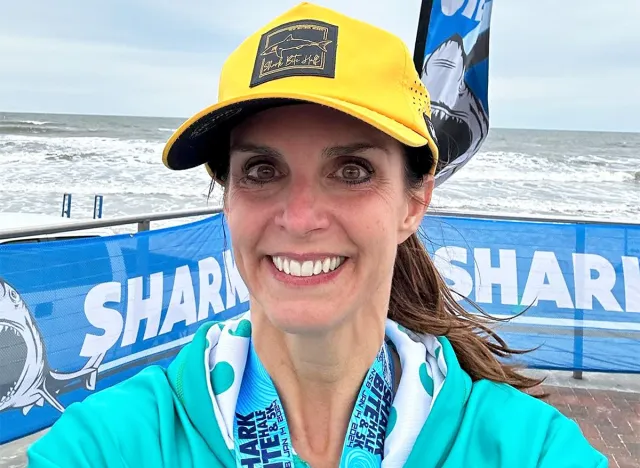
However, he acknowledges that occasional slip-ups may happen: "Sometimes you may fall off that wagon… The key is to get right back on and keep going." Scott shares that he allowed himself occasional cheat meals during holidays, but emphasizes the importance of quickly returning to the healthy eating plan.
Collingwood advises caution with the term "cheat." She recommends not completely restricting favorite foods but balancing them with nutrient-dense, lower-calorie options. Portion control is key for higher-calorie foods. She suggests including favorite foods in your diet but limiting their portions. Daily indulgences may not work for everyone. She states, "If a small amount sets you off to binge, then skip altogether. But if your personality allows you to have a few bits of chocolate or a bite or two of dessert, then go for it."
RELATED: 8 Signs You Are Burning Fat During Exercise
Knowledge is Your Power

Contrary to popular belief, Scott doesn't attribute his success to willpower. Instead, he credits knowledge. "What I do believe I've got is knowledge. I've been able to study to go and look at and to study what these things are doing inside my body," he explains. Understanding the negative impacts of certain foods made it easier for Scott to avoid them, turning his diet into an informed choice rather than a constant battle of will.
Find Your Inspiration

Scott emphasizes the importance of finding lasting inspiration over fleeting motivation. "Motivation is something that, it's kind of like taking a bath. You get all clean and you look really good and you're powering down the road all motivated, but it starts wearing off after time," he says. Instead, he encourages finding a deep, personal reason for change. For Scott, it's the desire to maintain health well into his later years: "I want to be healthy until I die. And that's what I'm trying to do."
Understand Your "Why"

Scott encourages finding a deep, personal reason for change. "If your motivation is I want to be 70, 80, 90 years old and be able to get down on the floor and play with my grandkids, my great grandkids, then that's pretty impressive motivation," he suggests.
Collingwood, underlines the importance of understanding the motivation behind weight loss. She says, "Losing weight and keeping it off is one of the most difficult behavior changes to make in life. If you don't have a strong reason pulling you to make the hard changes, it is not likely to stick".
Collingwood advises spending time exploring the root causes of your desire to lose weight. She adds, "I spend a lot of time asking about why they want to make changes and digging deeper into the reasons to really get at the root of the motivation."
RELATED: 11 High-Protein Hacks for Women to Burn Fat and Build Muscle Every 4 Hours
Take Aways' From Scott's Journey

Scott's journey shows that dramatic weight loss is possible with the right approach and mindset. By focusing on whole foods, eliminating processed options, and finding genuine inspiration, Scott transformed not just his body, but his entire life. His story serves as a beacon of hope for anyone looking to take control of their health and change their future.
"How to lose body fat" is a question I get asked a lot as a nutritionist at Top Nutrition Coaching. Maybe a client wants to shrink their belly, reduce some arm flab, or slim down a double chin—no matter the area they want to target, it's important to know how to reduce body fat. "There are three key components of a sustainable body fat loss plan," says Puttuck: "Weight training, a higher protein diet, and adopting healthy habits." And if you enjoyed this article, don't miss 40 Health Symptoms That Can Be More Serious Than You Think.
